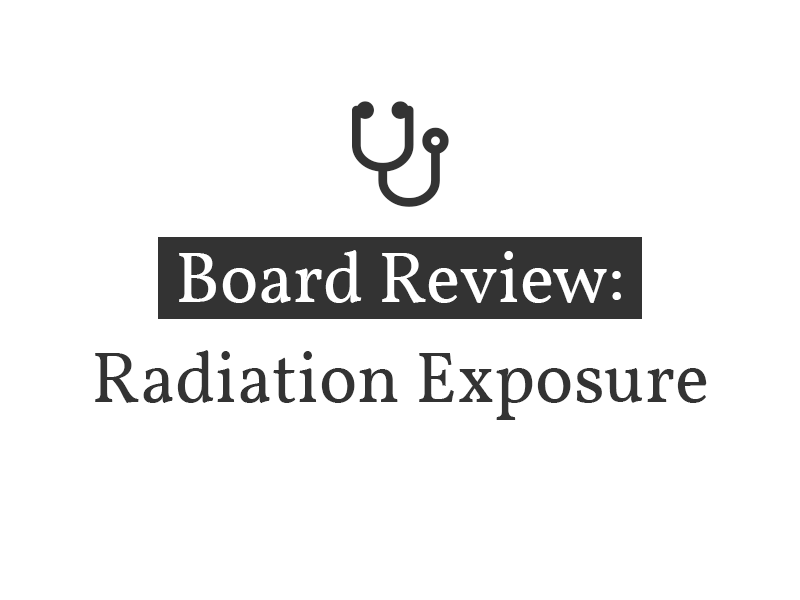SimWars
This post is part of a series developed in preparation for participation in ACEP SimWars. It contains a review of several prominent emergency medicine topics which may be relevant for board preparation. Unless otherwise cited, content is based on HippoEM videos.
- Toxicology
- Dermatologic Emergencies
- Acid-Base Disturbances
- Thyroid Emergencies
- Adrenal/Pituitary Emergencies
- Oncologic Emergencies
- Bleeding Disorders
- Hematologic Emergencies
- Submersion Injury
- Radiation Exposure
- Hypothermia
- Heat Emergencies
- Electrical Injuries
- Bites
- Altitude and Dysbarism
- Pediatric Emergencies
Physics
- Units
- Gray (amount of radiation absorbed by body)
- Sievert (toxicity associated with radiation exposure)
- Types
- Alpha: 0.1mm penetration, injury through ingestion
- Beta: 1cm penetration, injury through skin or ingestion
- Gamma: deep penetration
- Factors
- Time and distance (1/d2)
- Shielding
- Radiosensitive cells (rapidly dividing such as hematopoetic, GI)
Injury
- Localized: epilation or burns, delayed by days
- Internal (inhaled, ingestion)
- Radioactive iodine: high dose results in thyroid ablation, low dose increases risk of thyroid malignancy
- External: managed by removing clothing, soap/water shower
- Whole body (gamma)
| System | Dose | Time of onset | Signs/Symptoms |
|---|---|---|---|
| Hematopoetic | 2G | 2d | Pancytopenia, increased risk of infection |
| GI | 6G | Hours | Nausea/vomiting, diarrhea, GI bleeding |
| CV/CNS | 10G | Minutes | Shock, seizure |
Key clinical features
- Multiple affected individuals with nausea/vomiting suggests radiation exposure
- Rapidity of onset of symptoms suggests increased dose/exposure
- LD505G
- Prognosis by lymphocyte count
- ALC >1000 at 48h suggests good prognosis
- ALC <300 at 48h suggests poor prognosis

